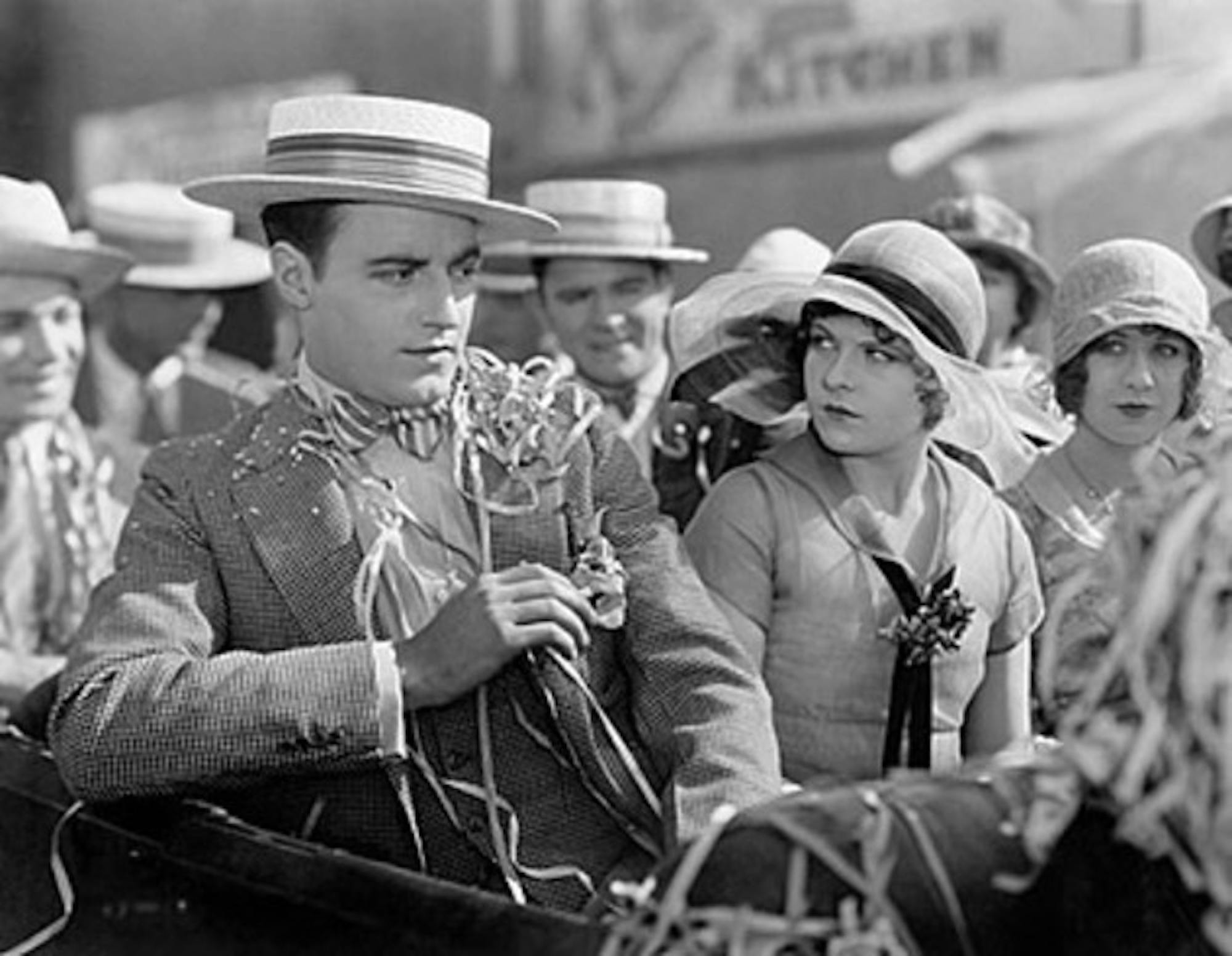I first saw "Lonesome" a little over a year ago, at the Telluride Film Festival in Colorado. I had seen roughly 12 feature films in the preceding 72 hours, and was drifting along in a sleep-deprived movie coma when our program director announced that the next screening on the agenda was a black-and-white silent movie from 1928. I remember sighing in blissful relief at the thought that, at last, I had come upon a film worth sleeping through.
But just as I was preparing to doze off, the theatre lights went down and the screen came alive with a movie unlike anything I'd anticipated. I was quickly awakened by three realizations. First, "Lonesome" isn't black-and-white, at least not entirely; many of its images are hand-painted with beautifully evocative colors that vivify the story. Second, the film isn't exactly silent, either; made one year after talking pictures were first introduced, "Lonesome" contains several sound sequences that were added by the studio to keep up with public demand. The corny dialogue got laughs from the audience, but for me the talking scenes served their purpose -- in a love story built entirely on winsome glances and emotive gestures, the few snippets of spoken dialogue literally give voice to the film's unspoken passions.
Third, I realized that "Lonesome" is, well, kind of fantastic. There's a stark simplicity in this story of two lonely lovebirds that gives the film its enduring universality. Jim (Glenn Tryon) and Mary (Barbara Kent) aren't ethereally gorgeous Hollywood types, but just average working-class New Yorkers who live lonely, uneventful lives. When they stumble upon each other at a Coney Island amusement park, it's not love at first sight, but something pretty close. The two of them spend a day together, and seem just about to fall hopelessly in love when suddenly Mary disappears into a teeming throng of carnival-goers. Jim frantically tries to find her, and his lovelorn quest soon builds to a stirring, unexpected conclusion.
All this is executed with an unabashed emotional generosity seldom found in Hollywood romances nowadays. "Lonesome" is a resolutely heartwarming film, but it veers away from saccharine -- Hungarian emigre director Paul Fejos lets the lovers' story develop organically, and keeps sentimental prodding to a minimum. Visually, Fejos has a keen eye for the anarchic beauty of the urban milieu (no wonder "Lonesome" is the centerpiece of the Film Society's "Bright Lights, Big City" series). A shot of Jim frantically searching for Mary amidst an indifferent crowd of strangers has all the kinetic energy of a movie made yesterday.
And speaking of energy, the most exciting part of Wednesday's show will not be found on the screen but on the stage next to it. The Alloy Orchestra, a three-man ensemble specializing in unconventional musical accompaniment for silent movies, will be performing a live score for "Lonesome" on Wednesday, and if they're half as good as they were at my Telluride screening, then the audience is in for a treat. Described by film critic Roger Ebert as "the best in the world at accompanying silent films," the members of the Alloy Orchestra are as talented as they are unorthodox. Utilizing everything from electronic synthesizers to musical saws to an instrument they call "the rack of junk," the orchestra has composed and performed original scores for countless silent films. Their orchestration for "Lonesome" is one of their most acclaimed -- my favorite part was vocalist Terry Donahue's rendition of Irving Berlin's "Always" at the film's climax.
The experience of one of the world's most exciting modern orchestras coupled with a beautiful new print of a great classic film (criminally unreleased on DVD) makes Spaulding Auditorium the place to be this Wednesday. I plan to be there front row center -- only hopefully this time, I'll get a good night's sleep first.




![HONEYJOON_[Ines Gowland]_4.PNG](https://snworksceo.imgix.net/drt/7af2efc8-1bd1-4001-b754-e2718ce663b8.sized-1000x1000.PNG?w=1500&ar=16%3A9&fit=crop&crop=faces&facepad=3&auto=format)